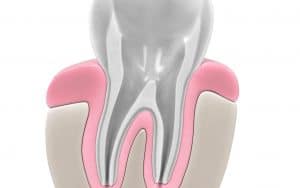 The more serious stages of tooth decay can sometimes seem like a much different condition than the more mild cases of cavities that people experience. Both are the result of tooth decay, which is an infection in your tooth’s structure, though mild to moderate cavities can often be treated conservatively with custom tooth fillings. In more advanced cases of decay, however, you could require more involved treatment, such as root canal therapy, to effectively remove the infection from your tooth.
The more serious stages of tooth decay can sometimes seem like a much different condition than the more mild cases of cavities that people experience. Both are the result of tooth decay, which is an infection in your tooth’s structure, though mild to moderate cavities can often be treated conservatively with custom tooth fillings. In more advanced cases of decay, however, you could require more involved treatment, such as root canal therapy, to effectively remove the infection from your tooth.
Root canals are more important than you think
The roots of your teeth describe the parts that aren’t visible and rest underneath your gum tissues, within your jawbone structure. As the visible part of your tooth (called its crown) bites and chews, the root offers it the structural support it needs to remain in place, unharmed. Inside of the tooth’s root is a canal that carries the nerves, blood vessels, and pulp tissues from the inner chamber of your tooth to your jawbone. This path is how your jawbone supplies your teeth with ample minerals and nutrients, and it can also be subject to infection if your tooth decay becomes severe enough.
Severe tooth decay can enter the canals rapidly
If your tooth is diagnosed with mild tooth decay and a cavity, it might seem like you have plenty of time before the condition becomes worse. This may cause you to hesitate to seek treatment right away, and give the tooth decay more than enough time to progress. One of the reasons why root canal therapy is still common is because the inner chamber and root canal of a tooth can become subject to decay before they realize it. The decay can continue to progress even further if not treated promptly, which could lead to increasingly more severe discomfort and concerns with your oral health.
Root canal therapy may still save your tooth
Because tooth decay is progressive, treating it as soon as possible is always an important concern. By the time it becomes severe, the decay may threaten your tooth so completely that the only viable solution is to extract the tooth to stop the decay. If your dentist recommends root canal therapy, then it means you still have a chance to save the tooth before it’s lost or requires extraction. That makes it especially important not to hesitate any further to seek treatment.
Learn more about root canal therapy
Root canal therapy isn’t what it used to be, and if your dentist recommends it, then it’s important to treat your tooth as soon as possible. To learn more, schedule an appointment by calling Peddicord Family Dentistry in Ankeny, IA, today at (515) 963-3339. We also proudly serve patients of all ages who live in Bondurant, Polk City, Elkhart, Alleman, Cambridge, and all surrounding communities.



